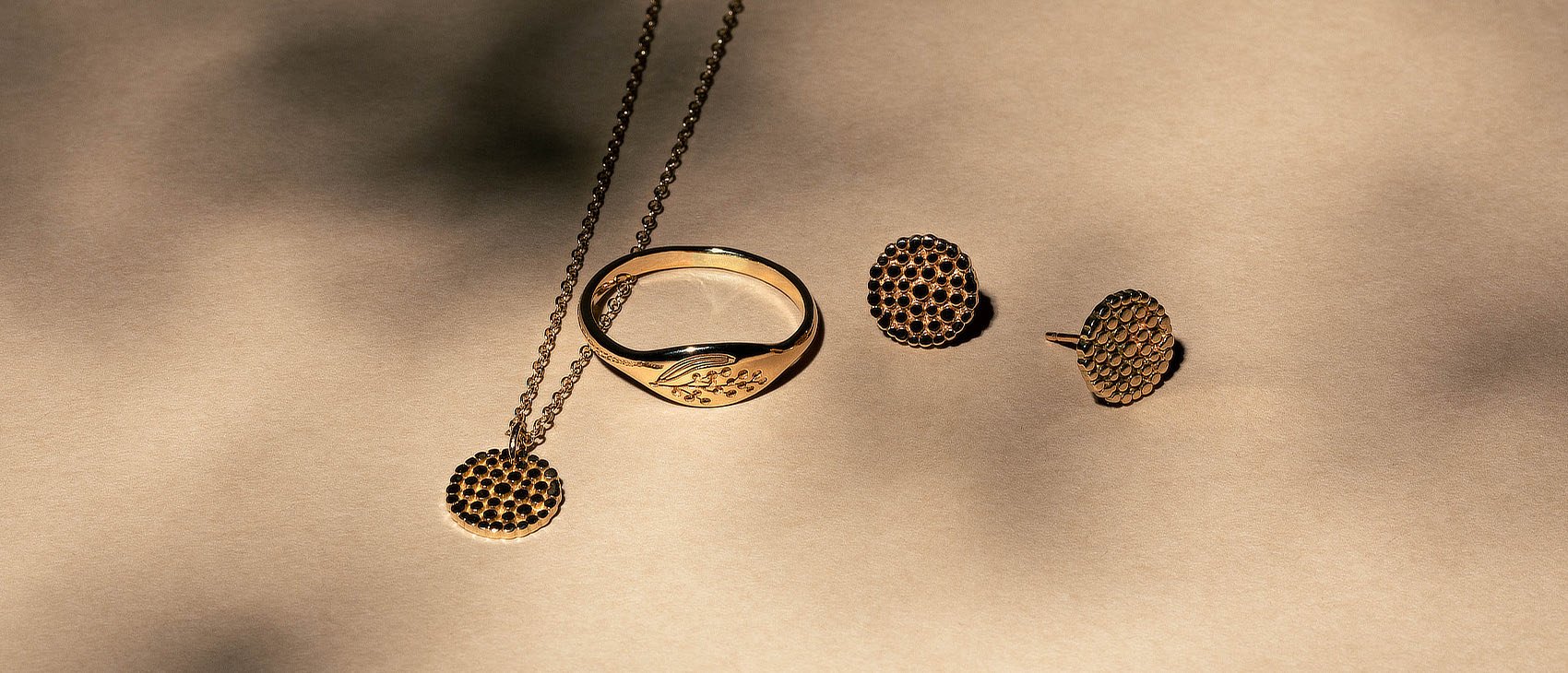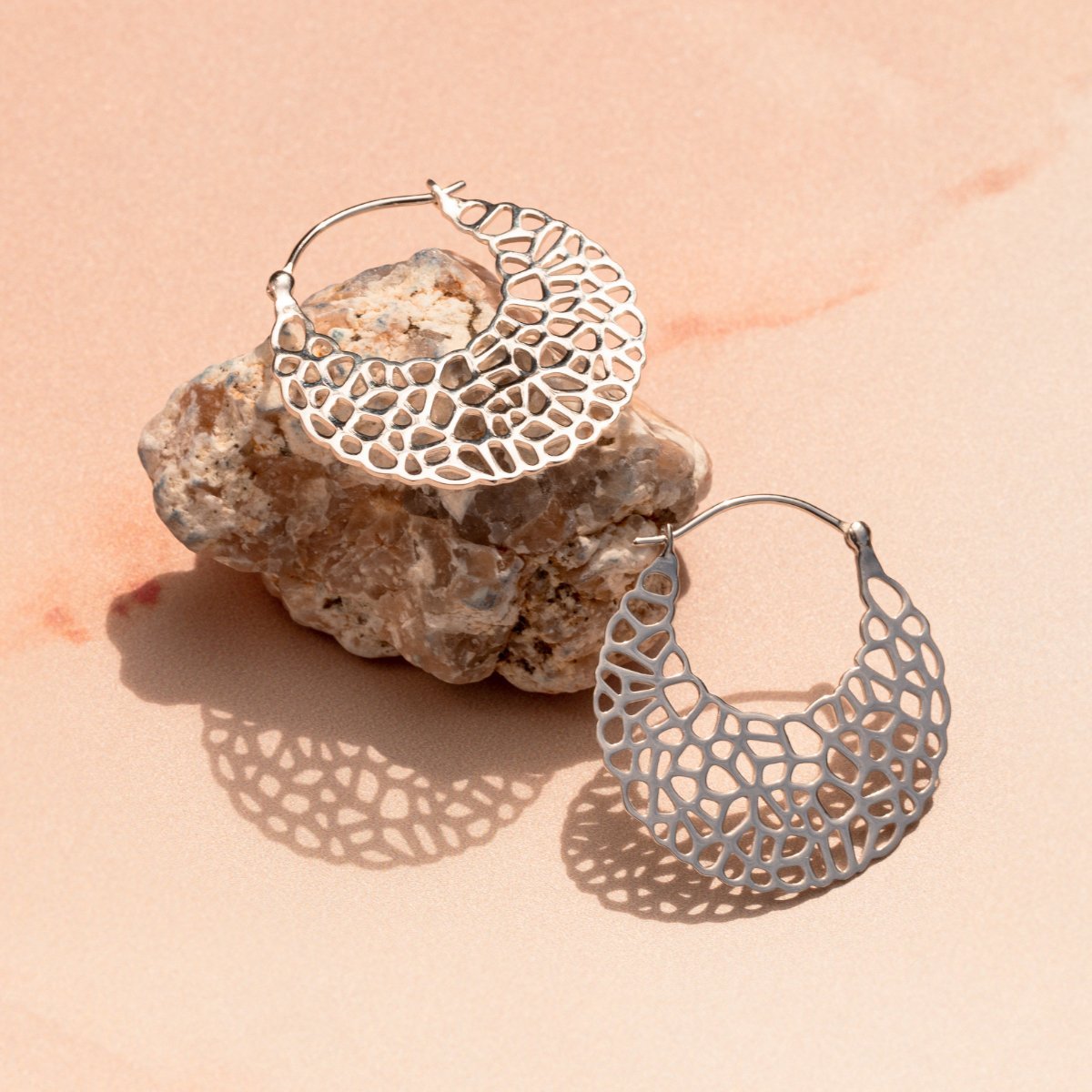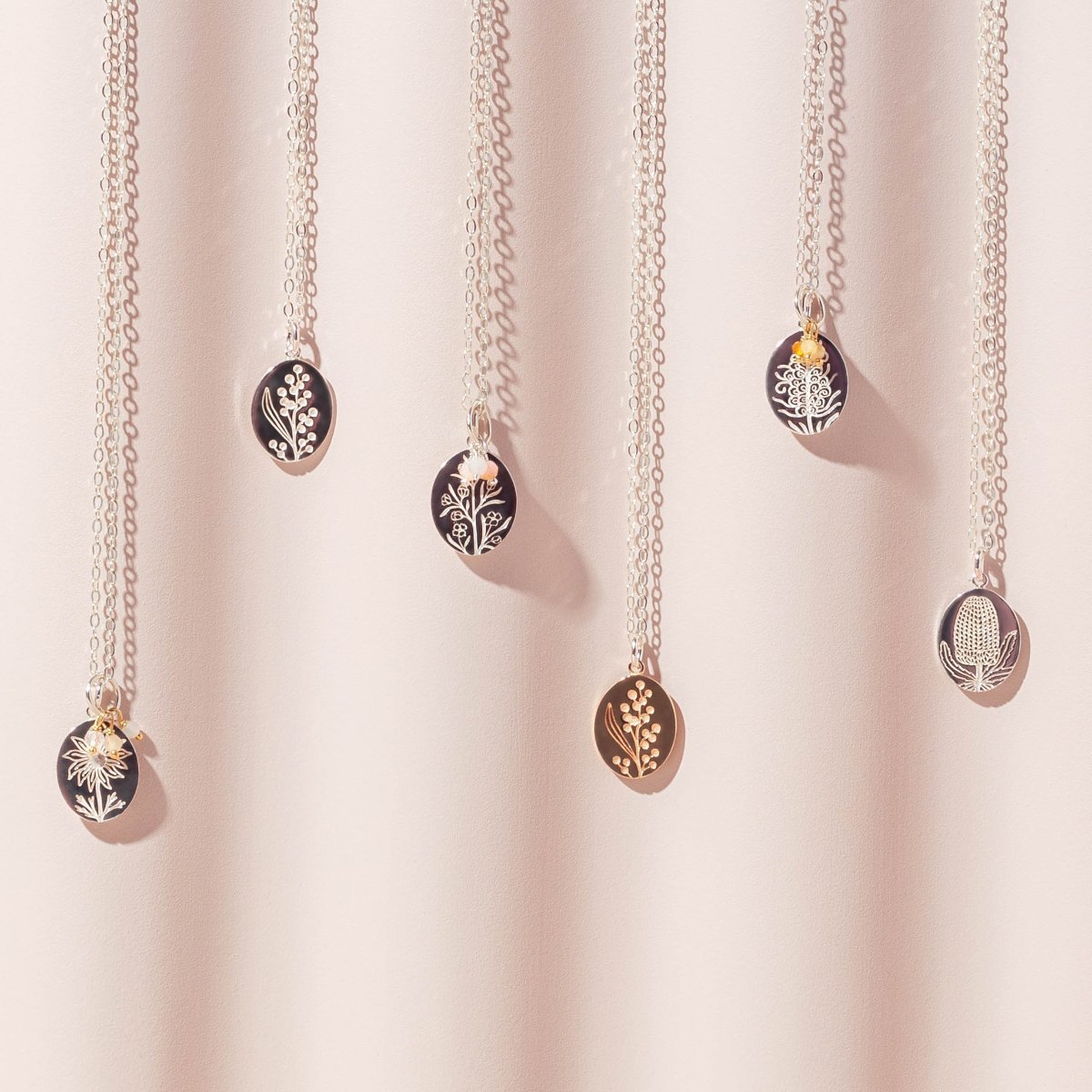 As an Australian jeweller with decades of experience, I've seen all kinds of jewellery mistakes - and I bet you're making a few of them yourself. Whether it's from lack of time, misinformation, or just habit, these common missteps can lead to damaged jewellery, wasted money, and missed opportunities. But I'm here to help you sort them out!
As an Australian jeweller with decades of experience, I've seen all kinds of jewellery mistakes - and I bet you're making a few of them yourself. Whether it's from lack of time, misinformation, or just habit, these common missteps can lead to damaged jewellery, wasted money, and missed opportunities. But I'm here to help you sort them out!
I truly want you to make the most of your jewellery collection: to actually wear it, to have it last and look good for years to come. I also want you to add to your collection thoughtfully and with enough knowledge to make considered choices.
It's easy for people to make mistakes when it comes to caring for or choosing jewellery - mostly due to lack of information or just not thinking things through. So I'm here to help you avoid these common mistakes and make the very most of your jewellery.
Let's get into the 12 jewellery mistakes I really wish you'd stop making (and how to fix them).
1. Not knowing what your jewellery is made from
Before you buy, always check what materials a piece is made from. If a seller isn't clear, then that should be a red flag when you're shopping. If it's not made explicit, then it's probably safest to assume the pieces is not genuine sterling silver jewellery, solid gold jewellery, or other precious metals.
If something looks like gold but is surprisingly affordable, it's almost certainly not solid gold at all, which is a very expensive metal. Most likely it's very thinly plated, which can wear off quickly - or it may even be a base metal like brass. Silver is a lot less expensive than gold, but still: if it's too cheap, that's a bad sign.
Base metals like brass - and especially nickel - may discolour your skin or cause allergic reactions. Regular thin plating will also rub off over time, although well made gold vermeil or gold filled will last a lot longer. Stainless steel can corrode in the right circumstances. 'Waterproof' coatings can and do wear through.
The bottom line: if you're looking at buying non-precious metal or plated jewellery, then do your research first. Learn more in our guide to Why Jewellery Materials Matter.
For gemstone jewellery, check if the stones natural, lab-created, or simulated so you know what you're paying for. All of these are perfectly reasonable options - and lab-grown or simulated can be a more ethical choice than mined gemstones - but you should always be clear about what you're getting.
Knowledge is power: take a peek at our guides to Different Types of Gold Jewellery, What is Sterling Silver?, and our comprehensive Jewellery Glossary for over 100 jewellery terms explained (well worth bookmarking for future jewellery shopping!). You might also like to read our Guide to Gemstone Jewellery.
2. Wearing the same jewellery every day
We all do it, but wearing the same pieces every day for long periods is not a great idea.
Most problematically, it leads to grime build-up and grotty jewellery. This is especially the case for hidden parts like stud earring posts and backs which may very rarely be taken off. These will collect residue from hair washing, and can lead to infections.
It also means you're getting stuck in a rut and you're simply not making the most of your jewellery collection. And that's no fun!
Take off and clean your everyday pieces at least every 1 to 2 weeks, and start rotating your jewellery more often. If you're low on options, consider gradually adding more variety — or drop some well-timed hints to your gift-giving loved ones.
3. Not being creative with jewellery styling
Jewellery is one of the easiest ways to elevate your look. It can be a simple change to make to even a tired outfit which turns out to make all the difference.
Try experimenting with different combinations — especially as seasons change. Layering, mixing metals, and trying bolder statement pieces can bring new life to your outfits.
I recommend spending some time in autumn and spring checking and cleaning your collection, then using a mirror to try on different combinations you might not have worn before - including trying them on with different outfits. This can revolutionise your wardrobe for the following seasons.
Need ideas? Our must-read guide on How to Style Jewellery will get you back to basics. It will help you to easily determine your personal style, refresh and reorganise your jewellery collection, and identify gaps and the best ways to fill them. Before you know it, you'll be confidently and creatively styling your jewellery - and your outfits more generally.
Remember: life's too short for boring jewellery!
4. Not cleaning your jewellery
I really am a total nag about this issue! But so many people completely forget to clean their jewellery, even though it's exposed to sweat, cosmetics, and skin oils daily. You wouldn't let your clothing get so dirty without washing it, so why ignore your jewellery?
A good clean will help your jewellery to sparkle again and it also will extend its life. I strongly recommend you check and clean all of your jewellery at least once a year - or more often if you live in a humid climate. Of course pieces you wear more often should be cleaned much more frequently.
The good news is that cleaning jewellery - especially if you don't let it get too worn and tarnished - is easy to do. Learn how to keep your jewellery sparkling in our comprehensive Jewellery Care & Cleaning Guide or our focused article on How to Clean Silver Jewellery.
5. Using the wrong cleaning methods
So I've already nagged you about cleaning your jewellery and now I'm going to nag you some more about doing it the right way!
Toothpaste, bicarb soda, lemon juice, vinegar and other harsh chemicals can permanently damage your jewellery. You might see these sorts of 'one simple trick' type jewellery cleaning tips all over the internet, but that doesn't mean you should use them.
Avoid DIY cleaning 'hacks' unless they come from a reliable source that specifically knows about cleaning jewellery. And please don't clean your pearls or opals with alcohol. Stick to gentle soap, warm water, and soft brushes unless you're following specific professional advice.
Visit the links to our jewellery cleaning guides above to learn the safest ways to keep your jewellery clean.
6. Wearing jewellery in the shower or pool
It's very tempting to leave jewellery on in the shower and so many people do just that. However, soap and shampoo residues can dull and damage metals and gemstones over time. Even tap water can pose a problem with excessive exposure - and that's the case even with gold and silver jewellery. Worse still, you risk losing precious pieces down the drain!
Swimming with jewellery on is even more problematic. Chlorine pools and saltwater can cause damage to silver alloys, erode solder joins, create pitting in gold or discolour stones (especially softer stones like pearls and opals). Saltwater can even dull diamonds, meaning pretty much nothing is safe in it!
My best advice: take your jewellery off before swimming, bathing, or cleaning - and that goes double if it includes pearls or opals.
7. Storing your jewellery poorly
You know those jewellery tree storage solutions that let your hang your pieces on display? They can look beautiful - like a Christmas tree full of jewellery! However, they're also a disaster - especially for precious metals.
Leaving your jewellery in free flowing air is - sadly - a terrible idea. Tarnish will build up rapidly and your pieces will gather dust and grime from the air. At best, you'll need to clean your jewellery much more often and at worst it will cause damage that can be difficult to repair.
Especially don't leave jewellery in humid places like bathrooms - or in the open if you live in a humid place. Humidity makes your jewellery a tarnish magnet.
I recommend that you store your pieces in a well designed jewellery box or soft pouches. Even storing pieces in small, padded boxes will work a treat - our gift boxes are perfect for this (they come with every piece of our jewellery).
Personally I use Stackers Jewellery Storage for my own pieces (no, they aren't paying me to say that: it's a genuine recommendation!). You can put together a solution that fits your needs and the storage boxes are well designed to keep your jewellery safe.
8. Letting your chains get tangled
Here's a top tip: clasp your chains when you take them off. This simple habit will help prevent chains from tangling - and tangled chains are no fun to deal with (trust me: as a jeweller I feel like I spend a chunk of my life untangling chains!).
Clasping won't completely prevent the problem, but it will help a lot, especially if you're keeping your chains jumbled up in a box (also not a great idea - you need a better storage solution!).
Another truly excellent idea - and a jewellery hack I can get behind - is threading necklaces through straws or other tubing to keep them separate while in storage. You can just thread one half of the chain through a straw and clasp it.
This solution makes a big difference when it comes to tangled chains. It's especially helpful when travelling, but will also work with your everyday jewellery storage too.
9. Ignoring the ethics behind your jewellery
Jewellery can have a dark side - from poor working conditions to unsustainable practices. And a number of jewellery businesses sadly engage in greenwashing to make it seem like they're doing the right thing, but there's no evidence that they actually are.
I can say - hand on heart - that we do our very best to be as ethical and eco-friendly as possible. We try to be transparent about our practices and we are always working to improve where we can.
When you're shopping for jewellery, ask yourself:
- Are the metals recycled or responsibly sourced?
- Are gemstones ethically sourced or lab-created?
- Is the maker transparent about materials and processes?
- Does the price reflect fair production costs? Would a worker have been paid appropriately for their labour?
- What sort of packaging does the seller use and is it as eco-friendly as possible?
Supporting independent designers (like us!) helps keep jewellery personal, meaningful, and - more often than not - ethical. Learn more in our articles on supporting indie designers and shopping small and handmade.
10. Buying jewellery from big chain stores
You know the types of jewellery chain stores that you see in big shopping malls: some are clearly fast fashion brands, while others present as higher end jewellery ... that is often surprisingly affordable.
The types of jewellery found in these large chain stores often cuts corners both in terms of quality and ethics. Many manufacturing jewellers tell stories about jewellery purchased from these big brands that is so poorly made and has so little integrity that it often can't be repaired.
For meaningful, high-quality pieces, invest in small makers with good reputations. If you're looking for a high end, traditional piece of jewellery, then find a local manufacturing jeweller instead of going to a big chain store. Invest in something that lasts longer, feels more personal, and supports better business practices.
For more unique pieces with a creative bent, then look for independent online jewellery shops like ours or go to a local design market and see what you can find. You'll be supporting a small business and will almost certainly get something much more interesting and better made than you'll find at fast fashion outlets.
11. Wearing the wrong necklace length
Instead of always reaching for the same pendant, think about how different necklace lengths and styles will work with different necklines. It's a small change that makes a big difference.
Keep a variety of lengths and necklace styles in your collection - and pick up a necklace extender for extra versatility. Our Necklace Length & Styling Guide will help you master working it all out.
12. Not knowing your ring size before shopping
This is a big one - and as a jeweller it's a mistake I encounter all the time. If you're buying a ring online, then don't guess your size! Incorrect sizing can mean delays, extra costs, and disappointment.
It might temporarily slow down your shopping, but it's not difficult to work out your size. And once you know it, then you can shop for rings to your heart's content.
Use our comprehensive Ring Sizing Guide and Ring Size Conversion Chart to help you figure it out before you buy. Better yet, invest in a reusable ring sizer or go to a jeweller and get measured professionally.
Knowing your ring size before you shop will make life easier for you - and your favourite jeweller as well!
Hopefully this list has helped you to spot (and fix) a few bad jewellery habits. If you want more practical advice, check out these handy reads:
- Jewellery Myths & Misleading Marketing
- How to Buy Jewellery Safely Online
- Gold or Silver Jewellery: How to Choose?
Ready to put your new knowledge to good use? Browse our unique Australian jewellery range, designed to help you look and feel amazing.
Other Related Reading:
- The Jewellery Rules - Tattler
- Avoid making these 4 mistakes to keep your accessories pristine - Art Becomes You








 Simone Walsh is a
Simone Walsh is a 
